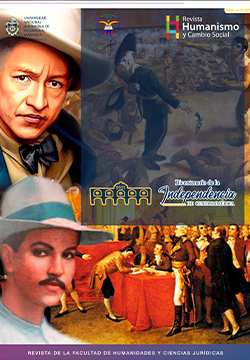Cleto Ordóñez: Our Forgotten National Hero by Conventional History, but above all by teaching
DOI:
https://doi.org/10.5377/hcs.v8i88.13540Keywords:
Cleto Ordoñez, independence, hero, mestizoAbstract
Cleto Ordoñez, forgotten by Nicaraguan historiography, appears in the pages of official history and in the speeches of few intellectuals who timidly mention him as participating in the process of Independence, here he shows how this mestizo must be highlighted in national history as a hero who was at the forefront of the struggles for independence.
Downloads
1367
References
Urtecho J.C (1962) “Reflexiones sobre la historia de Nicaragua”. (De Gainza a Somoza). Editorial Hospicio. León. Nic.
Pérez-Baltodano, Andrés (2003) Entre el Estado Conquistador y el Estado Nación: Providencialismo, pensamiento político y estructuras de poder en el desarrollo histórico de Nicaragua. Instituto de Historia de Nicaragua y Centroamérica Universidad Centroamericana, Fundación Friedrich Ebert, Managua.
Kinloch Tijerino, Frances (2012) Historia de Nicaragua. Managua, IHNCA, 4ta. Ed.
Esgueva, Antonio (1999) Conflictos y Paz en la Historia de Nicaragua. Taller de Historia No. 7. Managua. IHNCA-UCA.
Dïaz Lacayo, Aldo (2013) Las Tres Revoluciones independentistas de América desde la Historia de Nicaragua. Aldilá Editor.
Cleto Ordóñez: primer caudillo popular de Nicaragua. Por: Jorge Eduardo Arellano Debate historiográfico. 8 de agosto de 2009 http://www.elnuevodiario.com.ni/politica/54235
Downloads
Published
How to Cite
Issue
Section
License
Copyright (c) 2022 Universidad Nacional Autónoma de Nicaragua, UNAN-Managua

This work is licensed under a Creative Commons Attribution-NonCommercial-ShareAlike 4.0 International License.




